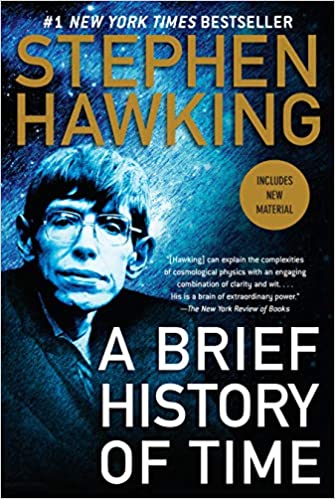I have to admit that I’m not sure I know more about science after reading this. What I can guarantee is that I do not know less.
Hawking does a great job of explaining complex topics in simple and engaging ways.
Fun fact: I now know what a singularity is and you can learn so as well by reading this book.
This book is also a great example of how geniuses and leaders are the people who can say uncommon things with common words.
Flow: 4/5
Actionability: 3/5
Mindset: 5/5
Some of My Highlights:
- “This was first pointed out by St. Augustine. When he asked: ‘What did God do before he created the universe?’ Augustine didn’t reply: ‘He was preparing Hell for people who asked such questions.'”
- “A theory is a good theory if it satisfies two requirements. It must accurately describe a large class of observations on the basis of a model that contains only a few arbitrary elements, and it must make definite predictions about the results of future observations.”
- “Any physical theory is always provisional, in the sense that it is only a hypothesis: you can never prove it.”
- “On the other hand, you can disprove a theory by finding even a single observation that disagrees with the predictions of the theory.”
- “The eventual goal of science is to provide a single theory that describes the whole universe.”
- “As an object approaches the speed of light, its mass rises ever more quickly, so it takes more and more energy to speed it up further. It can in fact never reach the speed of light, because by then its mass would have become infinite, and by the equivalence of mass and energy, it would have taken an infinite amount of energy to get it there. For this reason, any normal object is forever confined by relativity to move at speeds slower than the speed of light. Only light, or other waves that have no intrinsic mass, can move at the speed of light.”
- “The mass of the sun curves space-time in such a way that although the earth follows a straight path in four-dimensional space-time, it appears to us to move along a circular orbit in three-dimensional space.”
- “Space and time are now dynamic quantities: when a body moves, or a force acts, it affects the curvature of space and time – and in turn the structure of space-time affects the way in which bodies move and forces act. Space and time not only affect but also are affected by everything that happens in the universe.”
- “…there is a point in the universe where the theory itself breaks down. Such a point is an example of what mathematicians call a singularity.”
- “In other words, the more accurately you try to measure the position of the particle, the less accurately you can measure its speed. Heisenberg showed that the uncertainty in the position of the particle times the uncertainty in its velocity times the mass of the particle can never be smaller than a certain quantity, which is known as Planck’s constant.”
- “…one certainly cannot predict future events if one cannot even measure the present state of the universe precisely!
- “In general, quantum mechanics does not predict a single definite result for an observation. Instead, it predicts a number of different possible outcomes and tells us how likely each of these is.”
